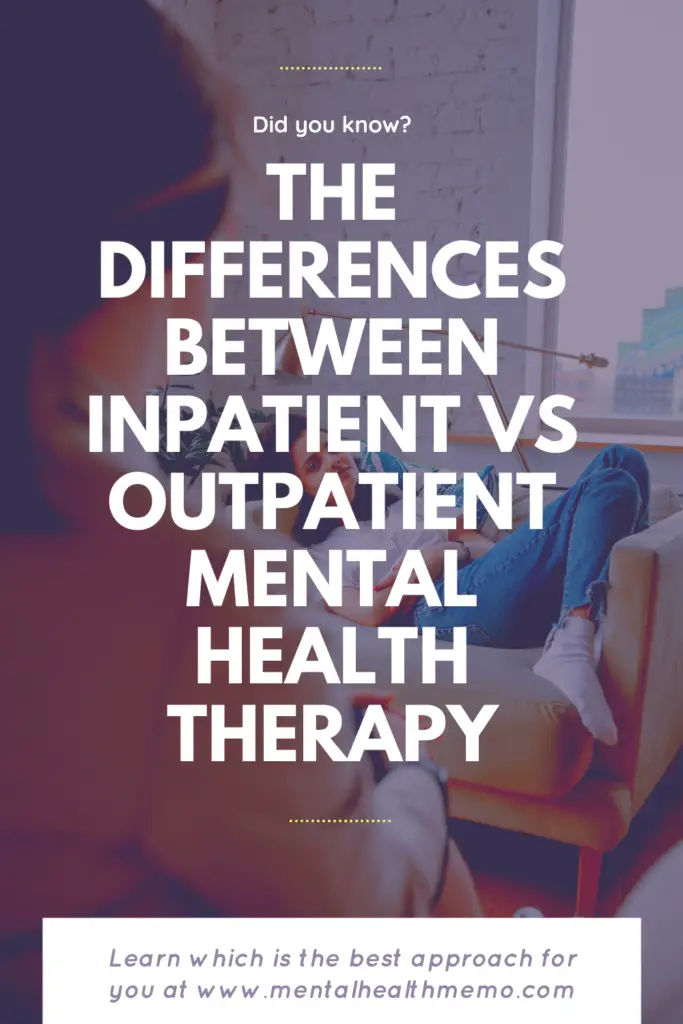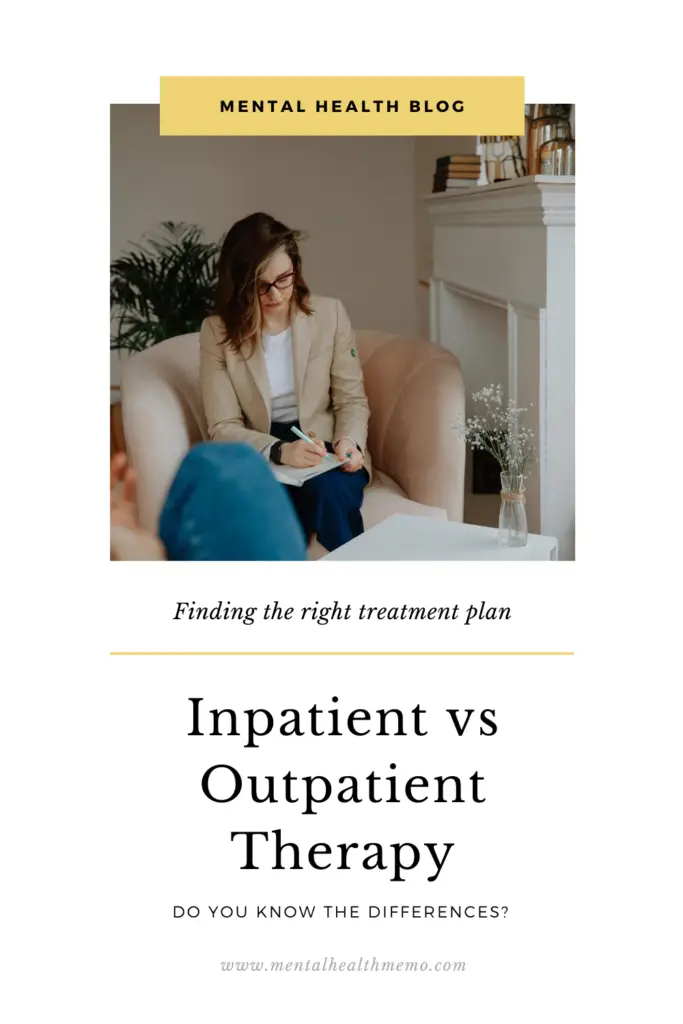Why Outpatient vs Inpatient Therapy for Mental Health Matters
Hi friends!
I wanted to make this comprehensive post on what you can expect from outpatient vs inpatient therapy for mental health, and which one might be better for you.
The reason why knowing the difference between outpatient and inpatient therapy is important is that it can drastically impact your recovery and healing journey. As you’ll soon find out, the intensity and dedication of time vary significantly between these two options.
By understanding what each type of therapy offers, you can make the most informed decision for yourself and your needs.
I personally went through intensive outpatient therapy for 2 years, when I was around 12, and then on and off again after that. I was offered inpatient therapy as well, but after learning about what it would entail, I knew it wasn’t right for me.
Had I not known in advance, I can’t even begin to imagine how much different my life and mental health would be now.
So I’m using my own experiences with what I have learned in my professional field (Social Work/Psychology) for this one. Let’s get started!

Inpatient Therapy for Mental Health
Inpatient therapy requires you to stay at the facility overnight, for varying amounts of time. It could be anything from a few days to months.
While these programs are often reserved for very severe or urgent matters, you don’t necessarily have to be either of those things to get access and acceptance to an inpatient program.
A facility could either be a publically-funded hospital, asylum, or mental health services building. Inpatient programs can also be private, meaning you pay out of pocket. These facilities can range from houses, nature resorts, rehab centers, and much more.

What’s important to know about inpatient programs is that they are INTENSIVE. You’re there all day and all night for as long as you’ve been set to stay. This can either be really effective for some people or really overwhelming.
There are great benefits to being surrounded by people going through similar struggles, and always having immediate access to mental health professionals.
However, if you’re someone who needs time away from working on yourself to think and relax, inpatient therapy might be a bit too much.
Another issue to consider is if your life allows you to temporarily leave it and stay at a facility for some time. So, can you take time off work? Or off school? Is someone able to care for your cat? Or your kids? These are important things to consider.
I was offered to go into an inpatient program when my anxiety and depression got extremely out of hand, but I declined it. The reason I rejected it (aside from the intake working being a complete a-hole), is that I was dealing with too much anxiety.
If I had stayed as an inpatient, I would have been anxious about being away from home, which in turn would have made me worse rather than better.
So I knew that for me, inpatient was too overwhelming and I wanted to be home, not somewhere else while healing. However, you may have a completely opposite opinion, and would actually benefit from not being home.
Again, it depends on YOUR needs.
In summary, this will be good for you if you:
- Need intensive or immediate help
- Are comfortable and able to stay at a facility for a somewhat long period of time
- Find one that works ethically and professionally
- Can finance it (if you choose a private one)
Outpatient Therapy for Mental Health
Outpatient therapy means that you aren’t staying at the facility, and are instead coming to it during specified times.
These can vary in length (of appointments and in between them), and in intensity (what you do during the session). But the idea is that you have a set date that you come in to see your mental health professional, then you go home.
For example, I was seeing a psychiatrist 2 times a week, every week, for about 2 years. Sessions lasted about an hour and we would actively and intensively do Exposure Therapy and Cognitive Behavioural Therapy.
This could be very different from a hypothetical person who is going through grief, and may only need to come in once or twice a month and just talk about their feelings.
This allows for lots more flexibility if you can’t dedicate days on end to be in an inpatient program. On top of that, while therapy is always going to be intense, it doesn’t surround you 24/7 in the same way it might in an inpatient program.
So if you’re a person who likes to separate themselves from the therapy process for a bit to reground and recollect, this might be a better option.
And I know I keep saying it’s less intense, but that certainly doesn’t make it less effective. You’ll still be doing similar work you’d be doing in an inpatient program, just maybe not as often.
You can find outpatient therapy programs in hospitals, social service buildings, and again, in private institutions. It’s your choice whether you want to go free and public or private and out-of-pocket.
In summary, this option will be better for you if you:
- Prefer to not stay at a facility
- Need flexibility
- Don’t want something as intensive
- Can finance it (if you choose private)

Summary of Outpatient vs Inpatient Therapy for Mental Health
You need to decide what is best for you and your needs. If you’re unsure, you can talk to your family doctor or maybe even inquire through phone at the hospital or facilities you’re considering. They will be able to paint a much clearer picture for you that can help you decide.
I hope this short little post helps anyone trying to decide which option to take. Let me know if any of you have cool (maybe not so cool?) stories about your experience in either type of program!
All my love,
T

